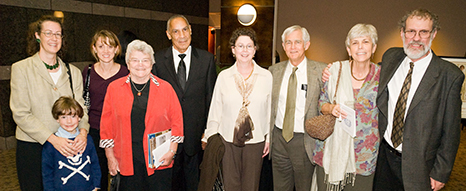
In the early 1970s the NCHC solicited proposals that focused on public policy issues arising from North Carolina's transition from a rural, agricultural society to an urban, industrial one. Dozens of projects-community forum series, discussion groups, films, lectures, and plays-were funded in communities across the state, and thousands of people participated. In 1976 the NEH began encouraging state councils to fund projects dealing with a wider variety of issues, and the NCHC broadened the scope of the proposals it solicited.
By the mid-1990s, more than 1 million North Carolinians had taken part in a program funded by the NCHC, and the council's budget had grown to more than half a million dollars annually. Every year, hundreds of humanities scholars-historians, poets, philosophers, and others-crisscrossed the state participating in public programs that explored topics ranging from the history of the blues to medical ethics and U.S. foreign policy.
By the early 1990s the council's primary funding source, the NEH, along with its sister agency, the National Endowment for the Arts, had come under steady attack by conservative critics in Congress and the media for its alleged promotion of "indecent" artistic works. Funding cuts and even the elimination of both agencies were proposed. Two former heads of the NEH joined the critics and recommended that the agency they had once led be dismantled. In response to this challenge, the council began, in the mid-1990s, to solicit more funding from private sources and to pursue funding from the state government. This strategy began bearing fruit as private contributions rose, and in 1997 the North Carolina General Assembly approved an appropriation of $100,000 for the NCHC. By 2006 the council had an annual budget of more than $1 million and had recorded more than $13 million in total grants since its founding.